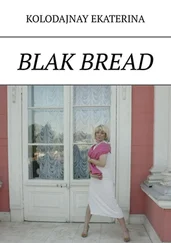I began to feel better and better in that household with those people who lived so differently to the way of life I’d known with my family, at home or on the farm. These were people who never raised their voices, who never went in for melodramatic gestures, who never went out looking a mess or wanted to spend more money than they had, who couldn’t bear to hear or see anything offensive to the eye or the ear, who always had someone in tow so they didn’t have to stoop down if they dropped something on the ground, who seemed to live on fresh air, without doing a stroke or ever “getting their hands dirty” as women textile workers would say, who were never so hungry they couldn’t defer until they found exactly the right delicacy to appeal to their palate, who knew how to behave properly towards everyone with the requisite pleasantry on their lips from their repertoire of polite commonplaces and courteous smiles, that were never expressions of genuine joy, who lived their lives as if they were gods because they knew their interests were eternal and would pass from heir to heir across the generations, who possessed so many qualities and opportunities it was impossible not to be touched by their allure, their magnetism and their energy.
The event that marked my definitive break with the past and my complete acceptance of the new world I was being offered was my mother’s visit. Mr. and Mrs. Manubens had announced that my mother would come to see me any day now, though they didn’t know which. And one cold wintry morning, with a freezing bite that reminded me of the icy roads and frosted fields of the plain, the prefect interrupted our class to tell me I had a visitor. Someone was waiting for me, or so he said, in the visitors’ room in the lobby. I walked warily downstairs, trying to keep my mind blank, acting under that total anaesthesia I’d committed myself to that was bringing such good results. The second I opened the frosted glass door to the small room, I found myself face to face with my mother, standing in the centre, looking at me with bright, shiny eyes.
Mother was wearing a simple black dress, a dark, nondescript headscarf and ash-coloured stockings. Her hair was gathered at the back of her head backwards with the curls of an ancient perm bunched on the nape of her neck, the only visible flourish, the remains of a grace that had been ravaged. I thought she looked thinner and her cheeks and forehead were lined with what seemed to be huge scars. She was holding a cheap, lurid patent leather bag. I wore my loose-fitting blue-striped uniform, a good size ten, as Grandmother would have said.
We hugged each other silently, and I shut my eyes, my face pressed against her chest.
I remembered that oily factory smell, mixed with the dryness of the flock and the roughness of the skeins of raw cotton, all tinged with a cheap cologne that smelled of medicine or pure alcohol, making my nose itch and me quite queasy.
“Are you all right?” she asked in a wispy voice.
I nodded.
“Do you need anything?”
“No…,” I replied.
She didn’t want to sit down. She said she’d first gone to the mansion but as she couldn’t wait for me there because the only train to get back to Vic in the evening left at midday, they’d told her she would find me at school, on the road out of the town, that she couldn’t miss it. She said she’d had to catch the first train from Puigcerdà when it was still dark and then change stations in Barcelona. That Tuites, a workmate of hers, was working two shifts in a row so she could leave the factory for a day with the boss’s permission and tomorrow she would do the same for her.
“You know what they’re like…” she commented as if she was talking about foreigners in exotic garb.
I didn’t want to imagine what those people were like, what that distant world was like, or what anything I’d left behind was like, I strained not to think of that difficult journey and the futile — futile? — efforts made by Mother to come and see me. My heart beat painfully as I imagined her nibbling the bread and cheese or fried sausage she no doubt had carried in her bag so she could have lunch by herself in a forlorn corner of the train station. Something inside me cried out against the invasion of my new world by that skinny, frail, aged, lonely woman who was completely at a loss. An impulse that didn’t surface because it was drowned by a wave of tenderness, warmth, sympathy, affection and melancholy that disappeared in an inner sea of tears. However, those tears wouldn’t come, I refused to let them, I fought to repress and dilute them with that impulse that sustained my quiet, polite, formal behaviour, formal manners that could never be breached in my new universe in that lean and sunny land.
Mother kept repeating: “Are they treating you well?”
“Do you miss us?”
“Do you eat everything up?”
“Do you sleep…?”
Or recommendations like: “Be good…”
“Don’t give them any reason to complain about you…”
“Make the most of everything…”
“Let them see we brought you up properly, that you’re a well-mannered…”
We said hardly anything else. We had nothing else to say. The visit was over in next to no time. I accompanied her to the door and we both walked past the reception counter, where an old Escolapian and a scholarship boy who were filling in forms glanced up and gave us strange looks. Out on the road we kissed on the cheeks and she said that at Christmas she’d ask an old workmate of my father who now drove a small truck taking small jobs from the leather factories in Vic to those in Igualada whether he wouldn’t mind bringing me back to town for the holidays, that the train journey by myself would be too complicated and she wouldn’t be able to come back. I nodded halfheartedly. When she walked off down the grey, sparsely populated road towards the station, I shut my eyes so as not to see her.
I can still see her looking forlorn and lonely in the Escolapians’ cold little waiting room, a room with shabby, monastic furniture, like a waiting room in a hospital for incurable paupers, with her sad smile and that factory smell no washing powder could eradicate and her almost empty garish, tacky bag, I could see her staring at me, her eyes glued to me, her whole bony body without an ounce of fat turned anxiously towards me, waiting for me, hour after hour on wooden benches in third-class compartments just to spend a few minutes with me.
I was stunned for the rest of the day. The two forces my mother’s visit had released within me were fighting a muffled, mute out-and-out war inside me.
When I reached the bungalow — it didn’t take much for me to call and make it my home — Mrs. Manubens and the maid referred to it pleasantly enough, not expecting any reply, as if it had been a trivial run-of-the-mill event.
“Did you see your mother, boy?”
“I expect she was pleased to see you.”
And that was all they said.
That evening the three of us had dinner together and I ate very little. My stomach felt knotted up, in an irritating though not painful way. Mere irritation. Mr. Manubens told us excitedly that the factory business was going full steam ahead, that we’d go to Barcelona next week to meet a big manufacturer, one of the most powerful in the province, who had good contacts and relationships with Madrid and so on…
That night, in bed, I heard nothing of the conversations with the visitors who dropped by for a coffee. I hid my head under my pillow and was on the verge of shedding tears but they wouldn’t come, they were dissolved by that opposing energy unleashed by my rejection of everything I didn’t want to let back into my life. Deep, deep down the light from images of Cry-Baby and the boy with TB lying on a sheet in the monastery garden glowed mournfully. I didn’t know what to do with them. It was like my mother’s visit, I didn’t know how to react to their pull, to the danger posed by their mute cry, to the demands made by their irrational felicity.
Читать дальше












